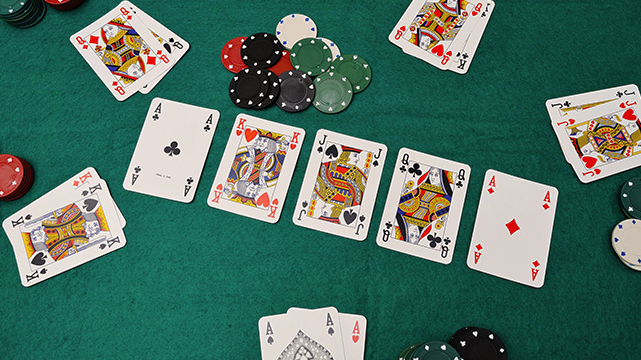Primary Differences Between Poker and Blackjack: Contrasting Casino Card Games


Poker and blackjack are two of the most popular card games in casinos worldwide. While both games involve skill, strategy, and decision-making, they have distinct differences in terms of gameplay, objectives, and dynamics between players and the house. In this blog post, we will explore the primary differences between poker and blackjack, shedding light on their unique characteristics and helping you better understand these captivating casino card games.
- The objective of the Game:
In poker, the objective is to win the pot, which is the collection of bets made by players throughout the hand. This is achieved by having the best hand at the showdown or by making well-timed and strategic bets that force opponents to fold. The hand rankings in poker determine the strength of a player’s hand, and players aim to maximize their winnings while minimizing losses.
In blackjack, the objective is to have a hand total that is higher than the dealer’s hand without exceeding 21. Players compete against the dealer, and their goal is to make strategic decisions regarding when to hit, stand, double down, or split their cards to reach a winning hand. Blackjack focuses on achieving a higher hand value than the dealer rather than competing directly against other players.
- Game Dynamics and Player Interaction:
Poker is typically played in a multiplayer setting where players compete against each other. The game involves a high level of player interaction, as participants must analyze their opponents’ actions, behaviors, and betting patterns to make informed decisions. Bluffing, reading opponents, and psychological warfare play significant roles in poker, making it a dynamic and strategic game of skill.
Blackjack, on the other hand, is primarily a player-versus-dealer game. Although other players are present at the table, their decisions do not directly affect the outcome of individual hands. Each player’s objective is to make decisions that optimize their chances of beating the dealer’s hand, with limited interaction among players. The focus in blackjack is more on employing basic strategy and card counting techniques to gain an edge against the house.
- House Edge and Skill Factor:
Poker is considered a skill-based game where players with superior strategies, reading abilities, and mathematical understanding can gain an advantage over their opponents. The outcome of poker games relies on a combination of skill and luck, with experienced players consistently outperforming novices in the long run. However, the casino generates revenue by taking a small percentage of each pot, known as the “rake.”
On the other hand, Blackjack is a game where players can apply optimal strategy and card counting techniques to reduce the house edge and improve their chances of winning. Skilled players can achieve a positive expected return in certain favorable conditions. However, blackjack still has a house edge, albeit a smaller one compared to many other casino games.
- Variations and Complexity:
Poker offers a wide variety of game variations, including Texas Hold’em, Omaha, Seven-Card Stud, and more. Each variant has its own set of rules, strategies, and betting structures, adding depth and complexity to the game. Players can choose the variant that suits their preferences and skill level, allowing for a diverse and evolving poker experience.
Blackjack, while offering some minor rule variations in different casinos, generally follows a standard set of rules. The focus in blackjack is on mastering basic strategy and card counting techniques rather than learning and adapting to various game variations. This simplicity makes blackjack more accessible to casual players and those looking for a straightforward card game experience.
Conclusion:
Poker and blackjack are both iconic casino card games that offer unique experiences and challenges to players. While poker emphasizes player interaction, strategic decision-making, and reading opponents, blackjack focuses on optimizing individual decisions to beat the dealer
and achieve a higher hand value without exceeding 21. Understanding the primary differences between these games can help you choose the one that aligns with your preferences and skills.
Poker may be the game for you if you enjoy a highly strategic and competitive atmosphere. Its multiplayer nature and emphasis on reading opponents and bluffing make it a thrilling experience. Poker rewards players who invest time in studying the game, mastering different strategies, and honing their skills.
On the other hand, if you prefer a game that relies more on mathematical calculations and strategic decision-making against the dealer, blackjack offers a compelling option. By learning and applying basic strategy and potentially incorporating card counting techniques, you can significantly reduce the house edge and increase your chances of winning.
It’s important to note that both poker and blackjack require practice and experience to excel. While luck plays a role in short-term outcomes, long-term success in either game is predominantly determined by skill, discipline, and a thorough understanding of the rules and strategies involved.
Ultimately, the key is to enjoy the experience and approach the game with a responsible gambling mindset, whether you play poker or blackjack. Set limits, manage your bankroll wisely, and focus on the entertainment value rather than solely chasing wins.
So, whether you prefer the psychological warfare and strategic maneuvering of poker or the calculated decision-making and card-playing against the dealer in blackjack, both games offer unique and exciting opportunities for players to test their skills, have fun, and potentially win money. Choose the game that resonates with you, invest time in learning and practicing, and embrace the challenges and rewards these captivating card games offer.





